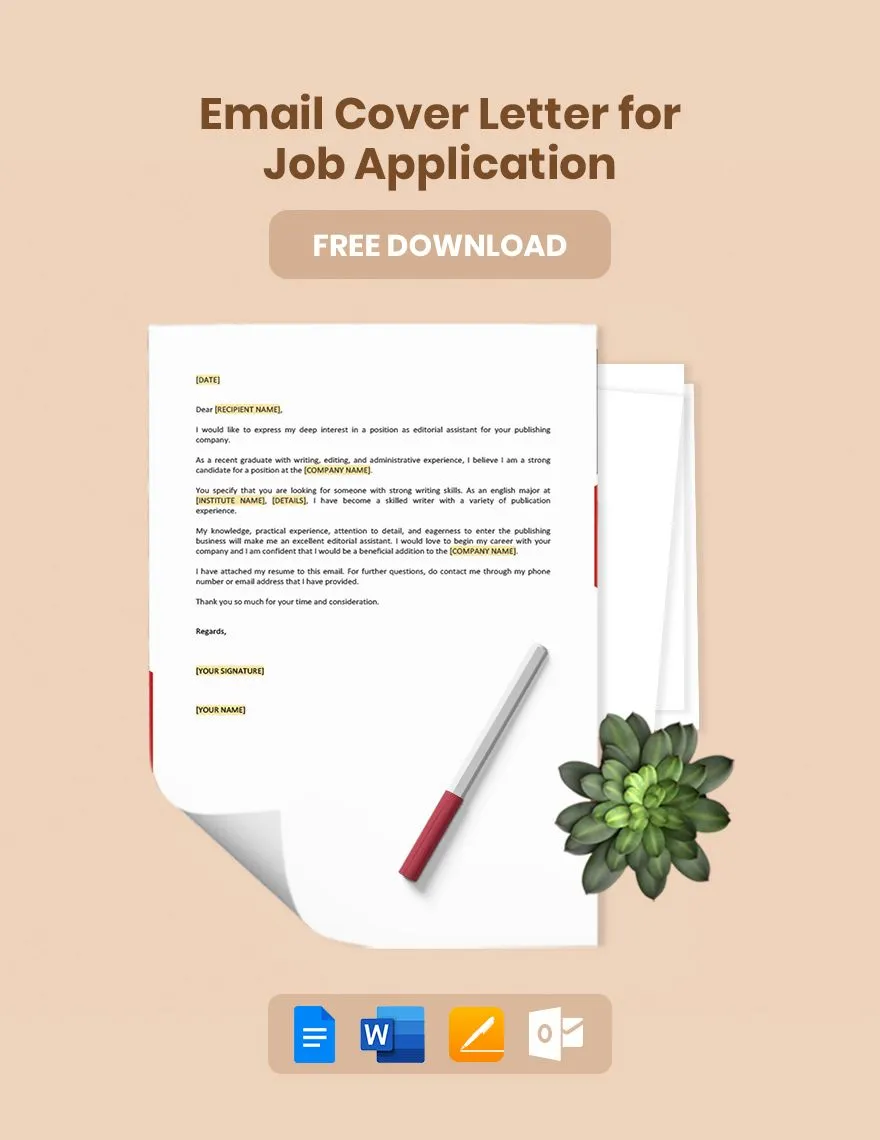Email Cover Letter Best Practices
In the competitive landscape of job applications, a well-crafted email cover letter is your first opportunity to make a strong impression. It’s not just a formality; it’s a crucial tool to showcase your personality, skills, and enthusiasm for the role. Unlike a traditional cover letter sent via mail, an email cover letter is often the initial point of contact with a potential employer. Its structure and content must be carefully considered to capture the reader’s attention and encourage them to learn more about you. Therefore, mastering the art of writing an effective email cover letter can significantly increase your chances of landing an interview. This guide provides you with the top 5 tips for crafting an email cover letter that gets noticed and gets you hired.
Subject Line Optimization
The subject line of your email is the first element the hiring manager will see, and it significantly influences whether your email is opened. A clear, concise, and engaging subject line is essential. Avoid generic phrases like “Job Application.” Instead, personalize it to reflect the job title and your name, for example, “Application for Marketing Manager - [Your Name]”. This immediately tells the recipient what the email is about and who it’s from. By crafting a subject line that clearly communicates the purpose of the email, you increase the likelihood of your application being read. A well-optimized subject line sets the stage for a positive first impression and ensures your application stands out from the deluge of emails recruiters receive daily. Remember, a compelling subject line is your first step toward making a lasting impact.
Why Subject Lines Matter
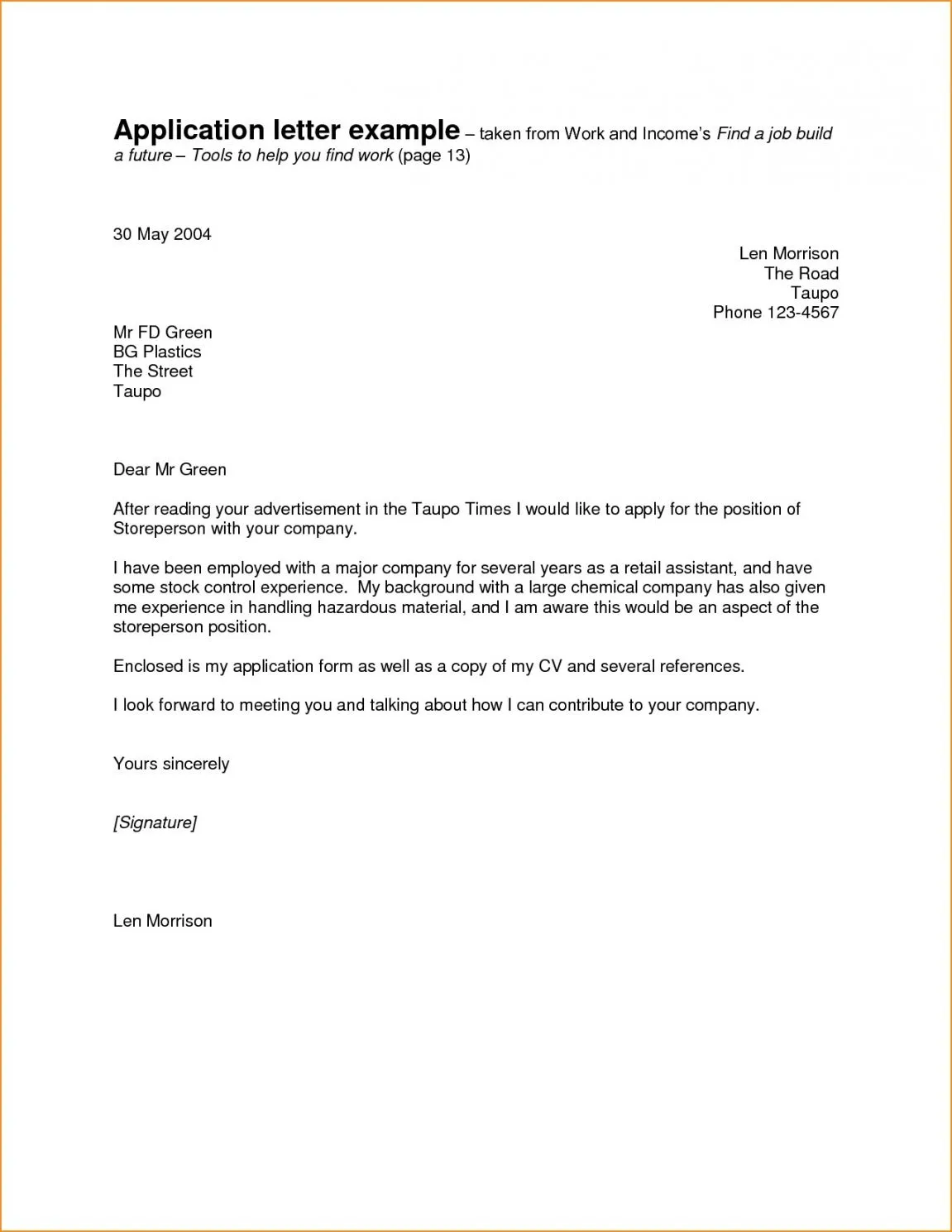
Subject lines are the gatekeepers of your email. They determine whether your carefully crafted message gets a chance to shine. A poorly written subject line can lead to your application being overlooked, deleted, or buried in the inbox, effectively ending your chances before they begin. A strong subject line, on the other hand, can immediately grab the recruiter’s attention, signaling professionalism and clarity. It serves as a preview of what the email contains, allowing the recipient to quickly understand the email’s purpose. With recruiters often sorting through hundreds of applications, a well-crafted subject line is your key to standing out and ensuring your application doesn’t get lost in the shuffle.
Crafting a Compelling Subject Line
To create a compelling subject line, focus on clarity and relevance. Include the job title and your name for instant recognition. If the job posting specifies a reference number, include it to ensure your application is routed correctly. Avoid using vague or overly creative subject lines that might confuse the recipient. Instead, be direct and professional. Consider using keywords that match the job description to ensure your application gets noticed by applicant tracking systems (ATS). By following these simple guidelines, you can create a subject line that not only gets your email opened but also demonstrates your attention to detail and professionalism.
Personalization is Key
A generic email cover letter can easily be dismissed. Personalization shows that you’ve taken the time to understand the company and the specific role. Address the hiring manager by name if possible; if you can’t find the name, a simple, “Dear Hiring Manager,” is better than a generic greeting. Tailor your content to match the job description and company values. Show that you understand their mission and how your skills align with their needs. Research the company, its culture, and any recent news or projects. This demonstrates initiative and a genuine interest in the opportunity. This personalization shows you’re not just sending out mass applications but are genuinely interested in the specific role and company.
Why Personalize Your Email Cover Letter
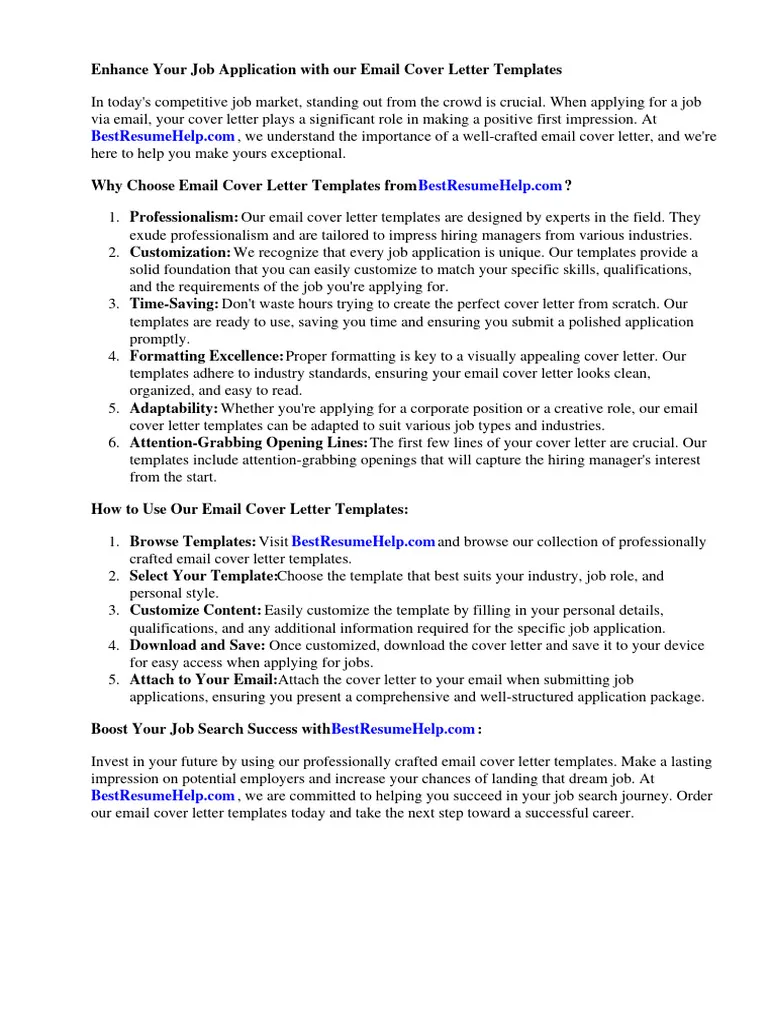
Personalization is the hallmark of a strong email cover letter. It signals that you’ve invested time and effort into understanding the specific role and the company. By addressing the hiring manager by name and tailoring your letter to their needs, you demonstrate your commitment to the opportunity. This level of attention makes a profound impact, setting you apart from generic applicants. Personalization transforms a standard application into a compelling narrative that showcases your unique value proposition and enhances your chances of success.
How to Personalize Your Application
Personalization starts with research. Investigate the company’s website, social media, and recent news to understand its values, culture, and current projects. If possible, find the name of the hiring manager or the person in charge of recruitment for the specific role. Customize your cover letter by highlighting skills and experiences that directly align with the job description. Reference the company’s mission, recent achievements, or any relevant information you’ve gathered. This shows that you’ve thoroughly considered the role and are eager to contribute to the organization. By personalizing your application, you create a meaningful connection and increase your chances of making a lasting impression.
Highlight Relevant Skills and Experience
Your email cover letter is the perfect place to highlight the skills and experiences most relevant to the job. Don’t just list your qualifications; connect them to the specific requirements of the position. Analyze the job description carefully and identify the key skills and experiences the employer is seeking. Provide concise examples of how you’ve demonstrated these skills in previous roles. Quantify your achievements whenever possible, using numbers to show your impact. For instance, instead of saying “Improved sales,” say “Increased sales by 15% in one quarter.” This concrete evidence makes your claims more credible and impactful. Tailoring your letter to the job requirements ensures that you’re immediately perceived as a strong candidate who can meet the company’s needs.
Showcasing Your Achievements
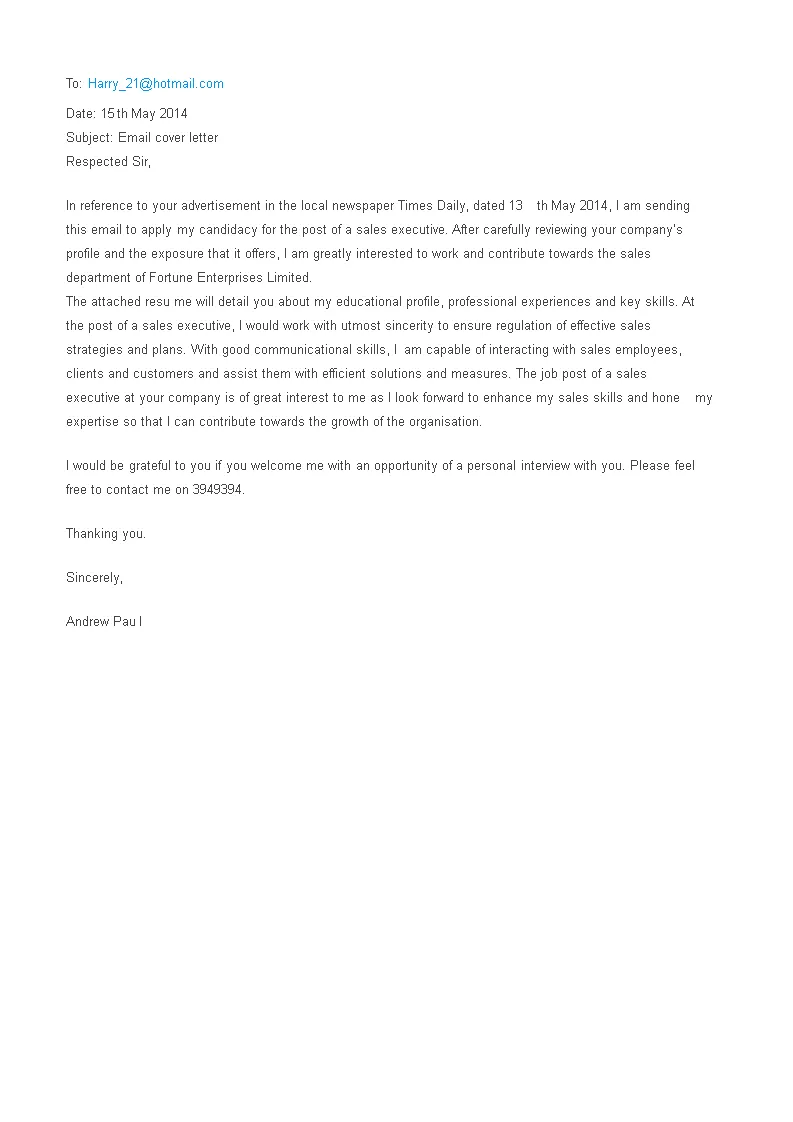
Showcasing your achievements is a critical element of a successful email cover letter. Instead of merely listing your responsibilities, focus on what you accomplished in previous roles. Use the STAR method (Situation, Task, Action, Result) to structure your examples. Begin by describing the situation you were in, the task you were assigned, the actions you took, and the results you achieved. This method gives context and demonstrates your problem-solving abilities and positive impact. Quantify your results whenever possible to illustrate your value. For instance, highlight how you increased revenue, improved efficiency, or reduced costs. This approach makes your achievements tangible and demonstrates your capabilities to potential employers.
Tailoring Your Letter to the Job
Tailoring your email cover letter to the specific job is crucial. Don’t send a generic cover letter; customize it to match the requirements of each position you apply for. Start by carefully reviewing the job description and identifying the key skills, qualifications, and experiences the employer is seeking. Highlight how your skills align with those requirements and provide specific examples that demonstrate your ability to meet their needs. Adjust your tone and language to match the company’s culture, ensuring you use relevant keywords from the job posting. This shows that you understand the role and have what it takes to succeed. Tailoring your letter significantly increases your chances of getting noticed and advancing in the application process.
Proofread and Edit Meticulously
Errors in your email cover letter can make a negative impression, undermining your credibility and professionalism. Proofread your letter carefully for grammatical errors, spelling mistakes, and punctuation issues. Read it aloud to catch any awkward phrasing or structural problems. Ask a friend, family member, or career advisor to review your letter for a second opinion. Sometimes, a fresh pair of eyes can catch errors you might have missed. Using grammar and spelling checkers is also highly recommended, but these tools are not foolproof. Make sure the tone is appropriate for the role and the company, avoiding overly casual or informal language. A polished, error-free cover letter shows your attention to detail and respect for the opportunity.
Why Proofreading is Crucial
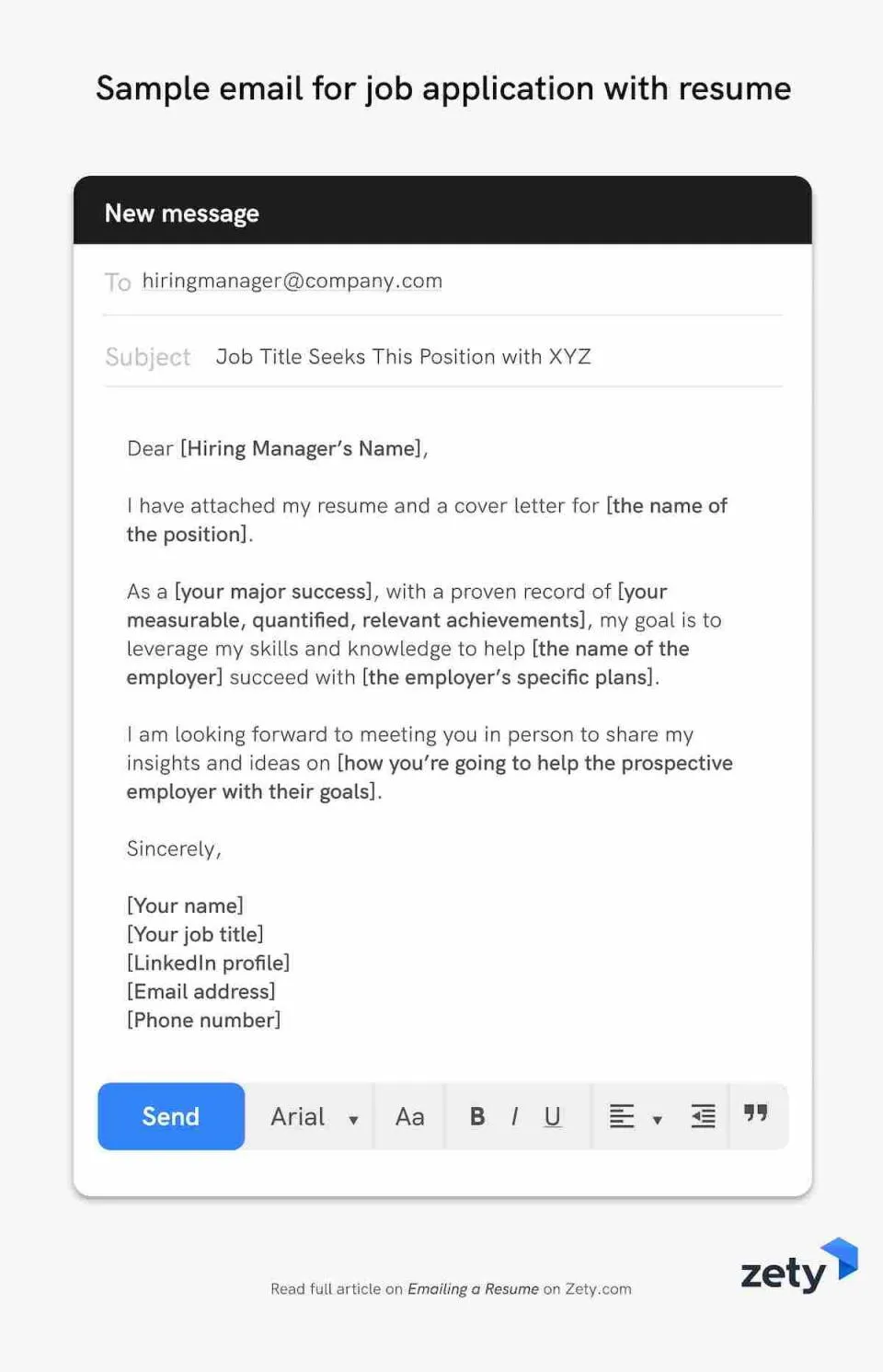
Proofreading is a non-negotiable step in the job application process. Errors in your email cover letter can undermine your qualifications and make you seem unprofessional, regardless of your actual skills. Poor grammar, spelling mistakes, and punctuation errors create a negative impression and may lead to your application being immediately rejected. Proofreading demonstrates your attention to detail and your respect for the opportunity. It shows that you are committed to presenting yourself in the best possible light. Take the time to carefully review your cover letter for errors, as it’s a reflection of your professionalism.
Common Errors to Avoid
Several common errors can damage your email cover letter. One is neglecting to proofread thoroughly. Another is using generic language that doesn’t reflect your unique skills and experiences. Other errors include using the wrong recipient’s name, providing irrelevant information, and making the letter too long. Avoid using slang or informal language that might be inappropriate for a professional environment. Double-check all the details, including the job title, company name, and contact information. Make sure your letter is concise, well-organized, and error-free before submitting it. By avoiding these pitfalls, you can significantly enhance your chances of making a positive impression.
Include a Call to Action
A call to action (CTA) encourages the reader to take the next step. Your email cover letter shouldn’t end abruptly; it should invite the hiring manager to contact you. Keep your CTA clear, concise, and specific. Provide your contact information (phone number and email address) for easy communication. Express your enthusiasm for the role and the company, reiterating your interest in an interview. Make it easy for the hiring manager to respond by providing a direct way to connect with you. By including a strong CTA, you increase the likelihood of moving forward in the application process, ultimately securing an interview.
What is a Call to Action
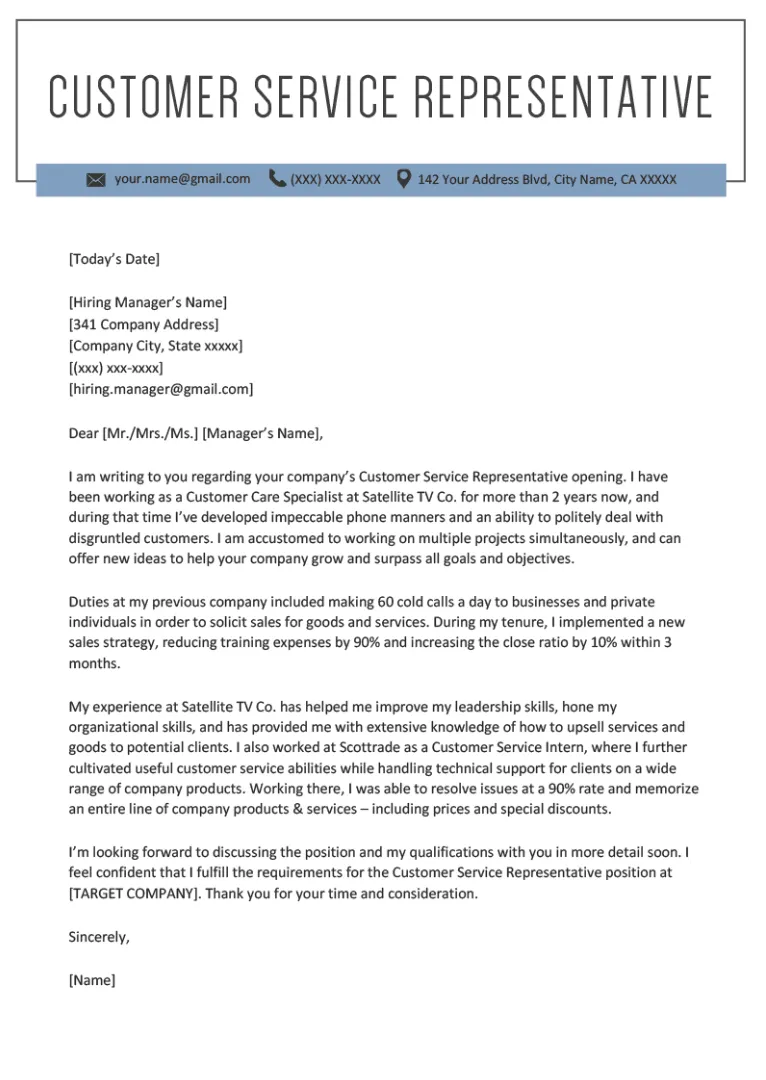
A Call to Action (CTA) is a statement or instruction that prompts the reader to take a specific action. In the context of an email cover letter, a CTA is designed to encourage the hiring manager to contact you for an interview. This can include providing your contact information, expressing your eagerness to discuss the opportunity further, and making it easy for them to reach out. The CTA should be clear, concise, and action-oriented. A well-crafted CTA ensures that your cover letter ends on a positive note, keeping the door open for further communication. It is the final step that encourages the reader to take the next action, increasing your chances of landing an interview.
Effective Call to Action Examples
Effective CTAs are direct and encourage the reader to take immediate action. Here are some examples “I am eager to discuss how my skills can benefit your team. I am available for an interview at your earliest convenience. You can reach me at [Phone number] or [Email address]”. “Thank you for your time and consideration. I look forward to hearing from you soon. Please feel free to contact me at [Email address] or [Phone number]”. “I am excited about the opportunity to contribute to [Company Name]. I am available for an interview and can be reached at [Phone number] or [Email address]”. These CTAs provide clear contact information and express your enthusiasm, making it easier for the hiring manager to respond.
In conclusion, crafting an effective email cover letter is essential for a successful job application. By following these top 5 tips – optimizing your subject line, personalizing your message, highlighting relevant skills, proofreading meticulously, and including a clear call to action – you can significantly increase your chances of making a strong impression and landing an interview. Remember, your email cover letter is your first opportunity to demonstrate your value and enthusiasm, so invest the time to make it exceptional. Good luck with your job search!
